Do you want to know all about breeding chickens? If so, then this guide will help you a lot. This informative article includes meaning, importance, and amazing tips for breeding chickens.
What is Breeding Chicken?
Breeding chickens is the process of selecting chickens with desirable traits to produce offspring with those same desired traits.
This can be done for a variety of reasons, including to produce chickens that are better at laying eggs, that grow more quickly, or that have more meat.
It involves selecting which chickens will mate and then ensuring that they have the opportunity to do so. It also requires keeping track of the offspring to ensure that they have the desired traits.
There are a number of different ways to breed chickens, and the best method for you will depend on your goals and the resources you have available.
The Importance of Chicken Breeding
There are a number of reasons why you might want to breed chickens. Perhaps you want to produce chickens that are better at laying eggs, or that grow more quickly.
Maybe you want to create a new breed of chicken that has a particular set of desirable traits. Breeding can also be done for more practical reasons, such as producing chickens that are less likely to get sick or that are better able to withstand hot or cold weather.
Whatever your reason for breeding chickens, it is important to remember that the process can be time-consuming and requires some knowledge and experience.
It is also important to have realistic expectations; even the best chicken breeders will not be able to produce perfect chickens every time. With that said, breeding can be a fun and rewarding way to improve the quality of your flock.
Also read: How to Take Care of a Broody Hen in Winter?
The Best 11 Tips for Breeding Chickens
Below are some amazing tips for chicken breeding:
1. Choose the best chicken breed for your backyard
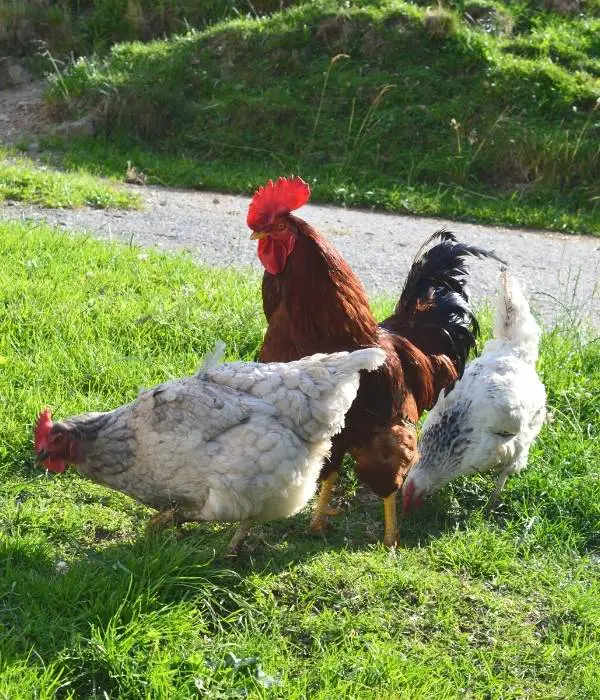
If you want to breed chickens, it is important to choose the right chicken breeds. Not all chicken breeds are created equal, and some are better suited for breeding than others.
When choosing a breed, you should consider the following factors:
Egg production
If you want to breed chickens for egg production, you will need to choose a chicken breed that is known for its high egg-laying ability. Some good choices include: Rhode Island Reds, Plymouth Rocks and Leghorns.
Australorp is another good choice, as this breed can lay up to 250-300 eggs per year. Keeping track of the egg production of your chickens will be important as this will give you an indication of which hens are laying the most eggs.
Size
If you want to breed chickens for meat production, you will need to choose a chicken breed that is known for its large size. Some good choices include Jersey Giants and Cornish Cross chickens.
Climate
If you live in an area with extreme weather conditions, you will need to choose a chicken breed that is known for its ability to withstand hot or cold temperatures.
The Orpington is a good choice for cold climates, as this breed is known for its thick feathers. Brahmas are a good choice for hot climates, as this breed can tolerate high temperatures.
Make sure that you have an area where your chickens can stay warm in the winter and cool in the summer.
Disease resistance
If you are concerned about disease, you will need to choose a chicken breed that is known for its disease resistance.
Some good choices include the Rhode Island Red and the Plymouth Rock. These breeds are also known for their hardiness, which means they are less likely to get sick.
Personality
If you want your chickens to be friendly, you will need to choose a chicken breed that is known for its docile personality.
Some good choices include the Orpington and the Brahma. These breeds are also known for being quiet, which can be important if you live in an urban area.
2. Take training and information for the same breed
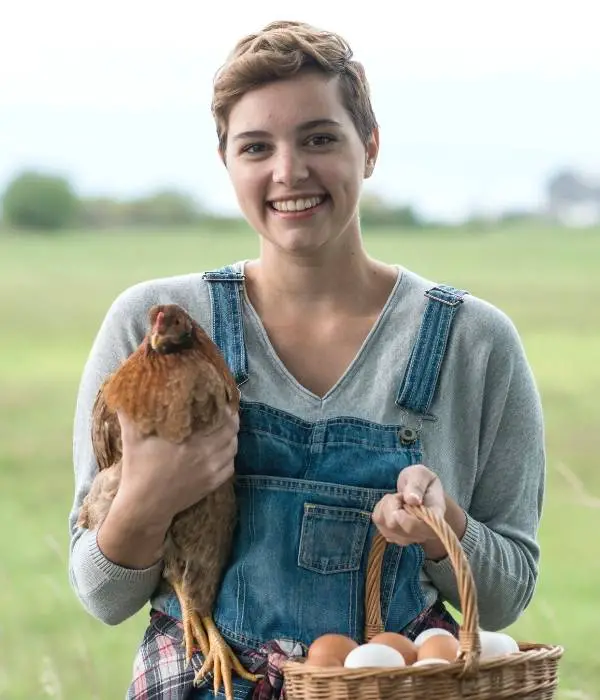
Before you start breeding chickens, it is important to take some time to learn about the process. There are a number of books and websites that can provide you with information on chicken breeds, chicken care, and chicken breeding.
You might also want to consider taking a class or attending a seminar on chicken breeding. This will give you the opportunity to ask questions and get advice from experienced chicken breeders.
You can also visit various backyard chicken farms and poultry raisers to learn more about breeding chickens.
3. Learn artificial brooding if you are buying chicks from hatcheries
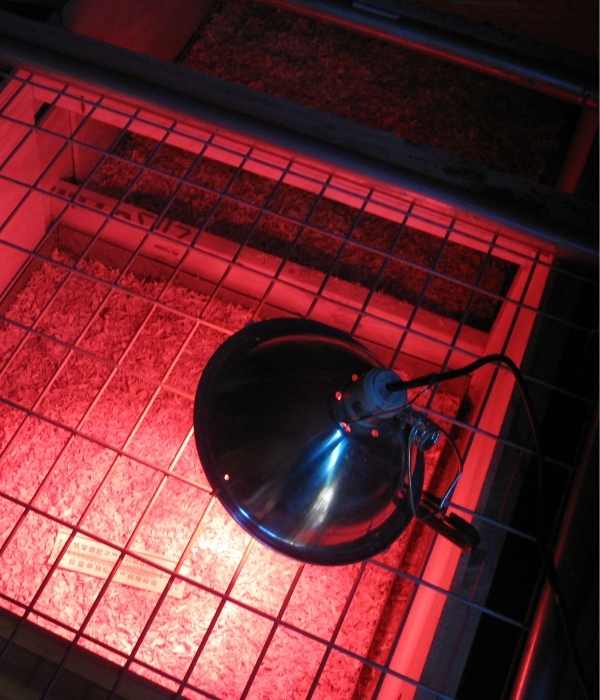
If you are planning on buying chicks from a hatchery, it is important to learn about artificial brooding. This is a process where the chicks are kept in a brooder, which is a heated enclosure that simulates the conditions of a natural nest.
Artificial brooding is important because it helps to ensure that the chicks are healthy and have a good chance of survival.
Also Read: Step by Step Guide For Brooding Chickens
Some of the basic things you need to know about artificial brooding include:
Set up a brooder
A brooder should be large enough for the chicks to move around in, but small enough to keep them warm.
The brooder should also have a heat lamp to provide warmth, and a water dispenser for the chicks to drink from. The corners should be blocked off using a brooder guard so that the chicks cannot get stuck.
- HOLDS 15 CHICKS: 2 baby chick starter homes, each...
- DURABLE: Each kit is with (10) 18-inch tall by 12-inch...
- MANY USES: Great for multiple uses and for housing game...
- ADJUSTABLE LAMP: Includes adjustable height brooder...
- EASY TO SET UP: Easy to set up so you can provide your...
Last update on 2025-10-11 / Affiliate links / Images from Amazon Product Advertising API
Brooding temperature
Chicks should be kept at a temperature of 95-99 degrees Fahrenheit for the first week of life, and then the temperature should be lowered by 5 degrees each week until it reaches 70 degrees.
Baby chicks can also be kept in a brooder with them best coop bedding, which will help to keep them warm.
How to feed baby chicks?
Chicks should be fed a high-protein diet, such as chick starter feed. They should also have access to fresh water at all times.
4. Understand rooster to hen ratio
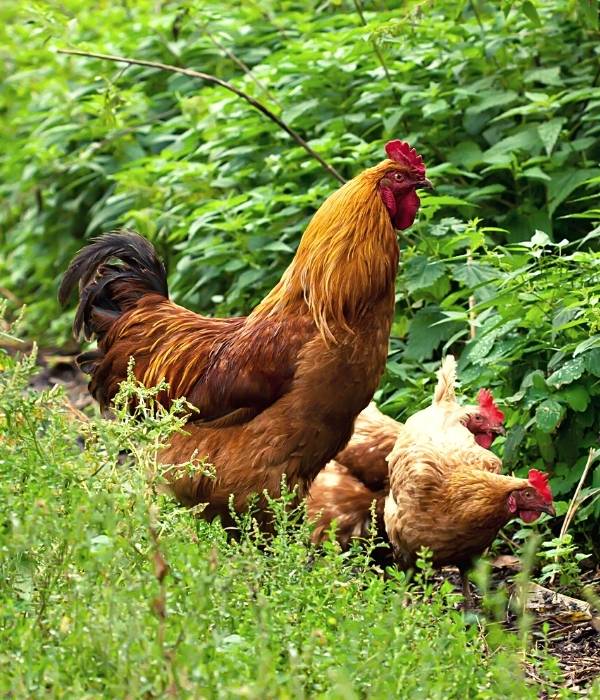
When you are breeding chickens, it is important to understand the ratio of roosters to hens. This is because you want to make sure that there are more hens than roosters.
The reason for this is that roosters can be aggressive, and they will often fight with each other. This can lead to injuries and even death.
If you have too many roosters, they will also start to mate with the hens too much, which can lead to problems with fertility. The ideal ratio of roosters to hens is 1:10.
5. Ensure proper housing for flocks
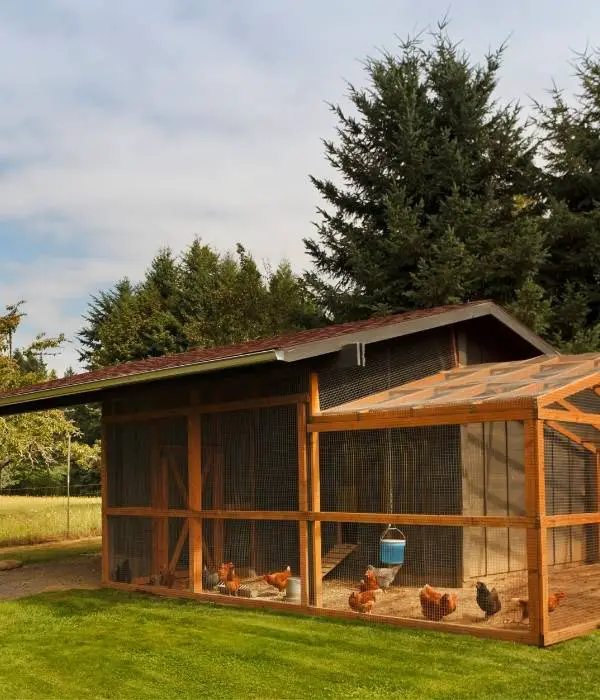
When you are breeding chickens, it is important to make sure that they have proper housing. Some of the basics that you need to provide include:
Bedding is material that is used to line the bottom of the chicken coop. It helps to absorb waste and keeps the chickens clean. Some good choices for bedding include straw, hay, or wood shavings.
Roosts/Perches
Roosts are perches on which chickens sleep at night. They should be made of an easy-to-clean material, such as plastic or metal.
However, most of the chicken raisers build wood perches because it’s easy and cheap. You can also go through our complete guide on chicken roosting.
Nesting Boxes
Hens’ nests are where hens lay their eggs. Nesting boxes should be made of a soft material, such as straw, and should be large enough for the hen to turn around in.
Read Here: How to Make a Chicken Nesting Box At Home?
Feeders and waterers
Another important aspect of chicken housing is providing feeders and waterers. Feeders should be filled with high-quality chicken feed, and waterers should be filled with fresh water.
6. Wait a few weeks to get eggs from your hens
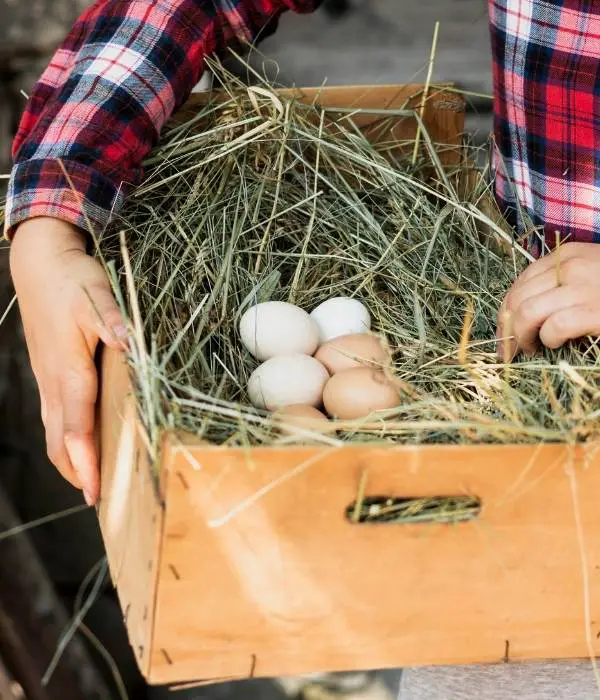
When you first start breeding chickens, you will need to wait a few weeks before you get eggs from your hens. This is because it takes a hen about 21 days to lay an egg.
Once your hens start laying eggs, you will need to collect them every day and put them in a clean nesting box.
Here are some tips to increase egg production:
Provide a high-quality diet
One of the best ways to increase egg production is to provide a high-quality diet for your hens.
This means feeding them a chicken feed that is high in protein and calcium. You can also give them access to green vegetables, such as spinach or kale.
Keep the coop clean
Another way to increase egg production is to keep the chicken coop clean. Your hens will be less likely to contract diseases and will be able to lay their eggs in a clean environment.
Provide plenty of space
If your hens are cramped in their coop, they will be less likely to lay eggs. Make sure that the coop is large enough for them to move around in and that there is plenty of ventilation.
Also read: How Much Space Do Chickens Need?
7. Monitor hens’ broodiness
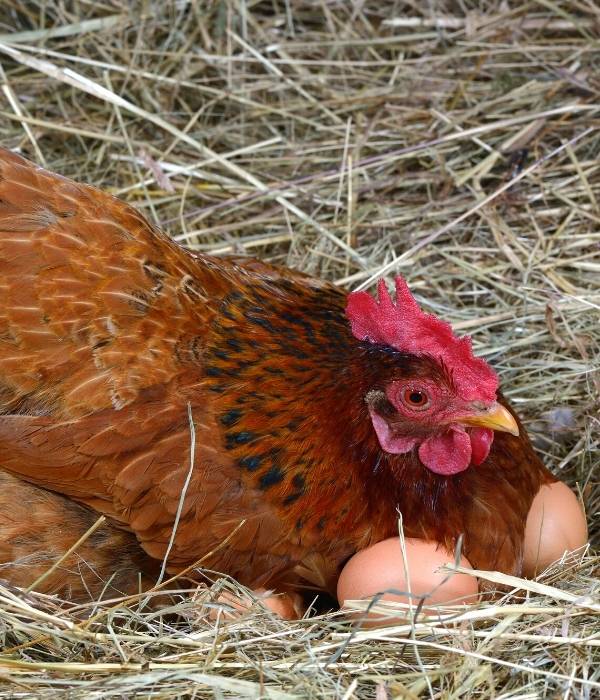
Broodiness is when a hen sits on a nest of eggs in order to incubate them. This is a natural behavior, but it can be problematic if you are trying to breed chickens.
This is because the hen will stop laying eggs and will only incubate the eggs that she is sitting on. In this type of situation, you can use a good quality egg incubator to hatch your eggs. So, that your hens will keep laying eggs.
8. Check eggs for fertilization
After the hens have been mated, you will need to check the eggs to make sure that they have been fertilized.
This can be done by candling the eggs. Candling is when you hold the egg up to a light so that you can see inside of it.
- UPGRADE DESIGN:This candler can be used directly...
- UPGRADE BUTTON: The switch button is set on the top of...
- NO HEAT DAMAGE TO EGGS: Our egg candler provide cool...
- TWO CANDLER COVERS: Come with two rubber candler covers...
- USE FOR LONG TIME: Charge for 3 hours, continuous use...
Last update on 2025-10-11 / Affiliate links / Images from Amazon Product Advertising API
Here are some of the things you should look for:
- The air sac should be at the large end of the egg.
- The chalaza should be visible as a white line near the center of the yolk.
- The embryo should be visible as a shadow near the center of the yolk.
- Blood spots or veins will not be visible in an unfertilized egg.
- The shell should be uniform in color.
9. Encourage your hens to sit on eggs, or hatch them manually in an incubator
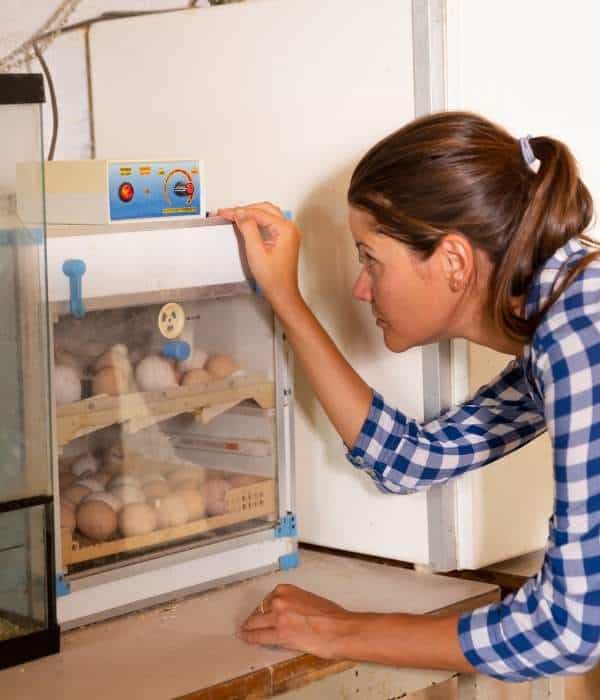
If you want to increase the chances of the eggs hatching, you can encourage your hens to sit on them.
Here are some tips:
- Make sure the nest is in a warm, dark place.
- Put fake eggs in the nest to encourage the hen to sit.
- Do not disturb the hen while she is sitting on the eggs.
- If the hen does not want to sit on the eggs, you can hatch them manually in an incubator.
10. Take care of baby chicks
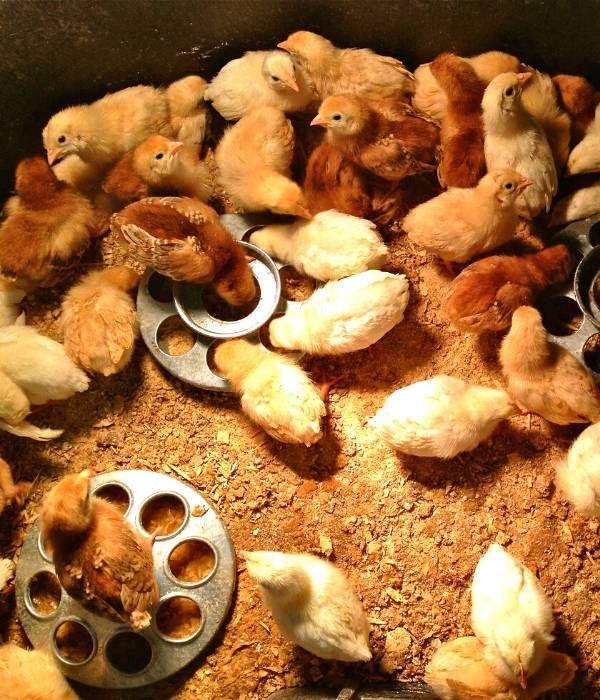
Once the eggs have hatched, you will need to take care of the baby chicks. This includes providing them with food, water, and shelter.
Here are some tips:
- Feed them a high-quality chick feed.
- Provide them with fresh water.
- Keep them in a warm, dry place.
- Do not overcrowd the chicks.
- Make sure they have enough ventilation.
Chicks that are well-cared for will grow up to be healthy chickens.
Also Read: Complete Guide on Raising Baby Chicks: Week 1 to 20
11. Vaccinate your chickens
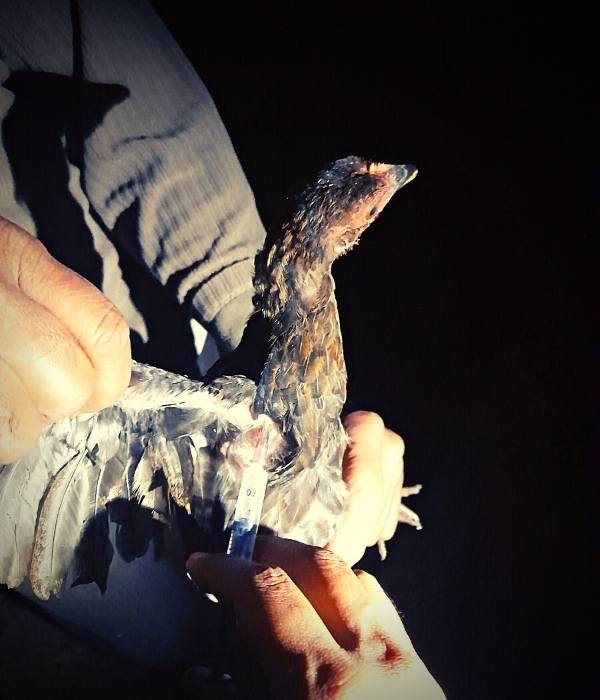
One of the best ways to keep your chickens healthy is to vaccinate them. Chickens can be vaccinated against a number of diseases, including Marek’s disease, avian influenza, and Newcastle disease, as well as fowl pox.
Vaccinating your chickens will help to keep them healthy and will reduce the chances of them getting sick. With proper care, your chickens will be healthy and will lay plenty of eggs.
Do You Need Proper Spacing Inside Coops For Breeding Chickens?
Yes, you need proper spacing inside coops for breeding chickens. Chickens need space to move around and to lay their eggs in a clean environment. If the coop is too small, the chickens will be less likely to lay eggs.
When chickens are crowded, they are also more likely to contract diseases. The chances of cannibalism and aggression also increase in crowded conditions.
How to Keep Roosters Near Hens?
The best way to keep roosters near hens is to provide them with plenty of space. Roosters need space to move around and to crow.
If the rooster is too crowded, he may become aggressive or start to cannibalize the hens. Roosters also need access to green vegetables, such as spinach or kale. Also, make sure to provide the rooster with a high-quality rooster feed.
Breeding chickens can be a rewarding experience. However, it is important to take care of your chickens and to provide them with the proper environment.
Make sure to provide them with plenty of space, food, water, and shelter. Also, check the eggs for fertilization and vaccinate your chickens to help keep them healthy.
Brooding baby chicks is also an important part of chicken care. Make sure to provide them with food, water, and shelter. With proper care, your chickens will be healthy and will lay plenty of eggs.
Summary
Breeding chickens is not a one day process. You need to take care of your flocks every day. From raising baby chicks till egg laying and hatching, it’s an amazing cycle.
I hope this guide will help you in your chicken breeding process. What’s your experience?


